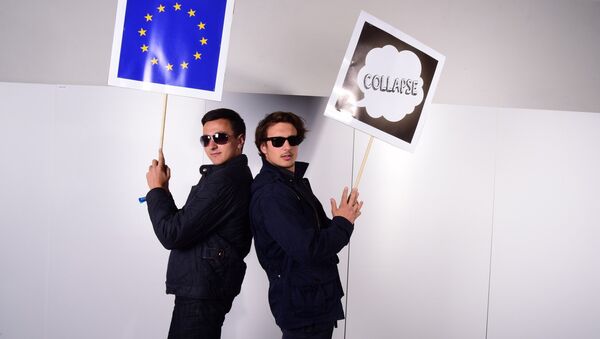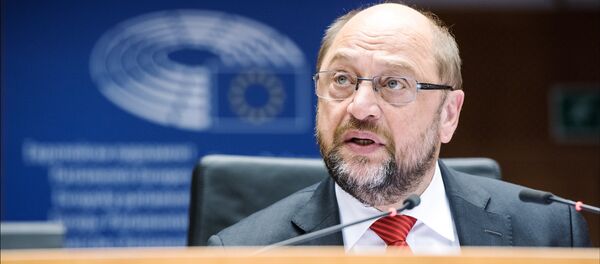Timmermans – writing in an opinion piece for Policy Exchange – admitted the EU was in a crisis following the fallout from the global financial crash which exposed weaknesses in the Eurozone, as well as the current migrant crisis which has shaken Schengen to the ground.
Main concern for Europeans #immigration #refugeecrisis more insights on https://t.co/zYPDj4DvDn pic.twitter.com/kcyT48cAOU
— EuroBarometer (@EurobarometerEU) January 18, 2016
His comments come as a time when the latest Eurobarometer poll shows that only 37 percent of Europeans have a positive image of the EU, down 4 percentage points since spring 2015.
The positive image of the EU has lost ground in 24 Member States, most strikingly in Estonia (36 percent, down 13 percentage points), Germany (3 percent, down 11) and the Czech Republic (27 percent, down 10).
"European unity is disintegrating rapidly." Why the #EU needs reform @anapalacio https://t.co/3BIUE50QyD #Europe pic.twitter.com/mOn1unz7M7
— World Economic Forum (@wef) 23 May 2016
"Europe suffers from a pervasive lack of trust. We have too little trust in our own ability to cope. And too little trust in one another. This makes solidarity difficult," Timmermans wrote.
Loss of Faith
His comments come as more and more people across Europe are losing faith in EU institutions which many critics deem to be too powerful and too remote – as witnessed by the poll. Many do not understand the massive bureaucracy that the EU has become.
There is equally deep division over the EU-Turkey refugee deal for the relocation of "irregular" migrants from Greece back to Turkey, which could pave the way for visa-free access for Turks into the EU.
The Eurozone is facing its own crisis, with Greece struggling to meet its bailout conditions and worries over the economies of some of the southern zone members. Many say the single currency will never work without a common fiscal and taxation policy, which is why the euro is seen as dysfunctional.
Timmerman’s comments come in the wake of a dire upsum of the state of the union by two other European chiefs.
The President of the European Council Donald Tusk admitted "the idea of one EU state, one vision … was an illusion," while European Commission President Jean-Claude Juncker conceded "we have too many part-time Europeans."



